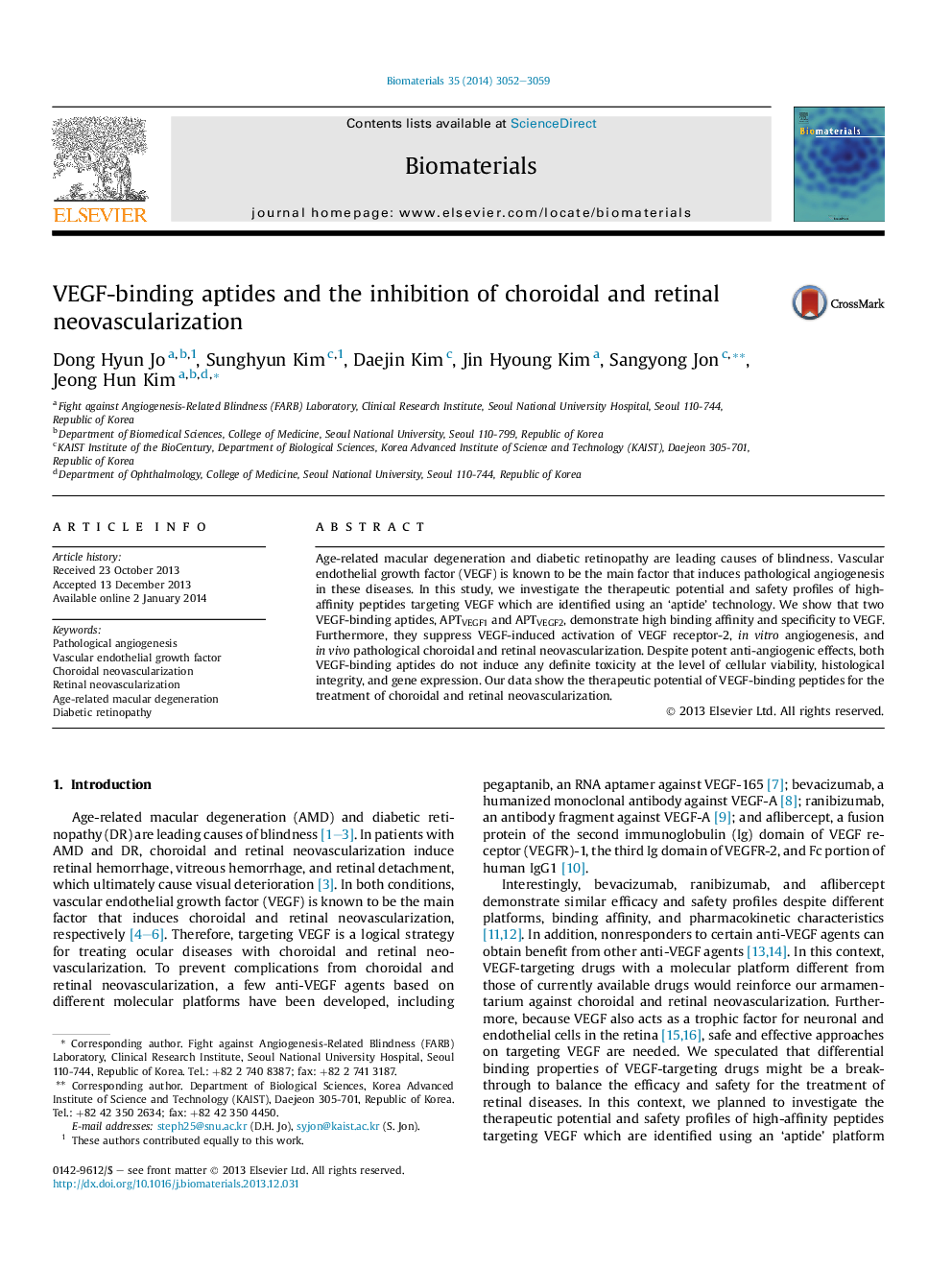| Article ID | Journal | Published Year | Pages | File Type |
|---|---|---|---|---|
| 10227895 | Biomaterials | 2014 | 8 Pages |
Abstract
Age-related macular degeneration and diabetic retinopathy are leading causes of blindness. Vascular endothelial growth factor (VEGF) is known to be the main factor that induces pathological angiogenesis in these diseases. In this study, we investigate the therapeutic potential and safety profiles of high-affinity peptides targeting VEGF which are identified using an 'aptide' technology. We show that two VEGF-binding aptides, APTVEGF1 and APTVEGF2, demonstrate high binding affinity and specificity to VEGF. Furthermore, they suppress VEGF-induced activation of VEGF receptor-2, in vitro angiogenesis, and in vivo pathological choroidal and retinal neovascularization. Despite potent anti-angiogenic effects, both VEGF-binding aptides do not induce any definite toxicity at the level of cellular viability, histological integrity, and gene expression. Our data show the therapeutic potential of VEGF-binding peptides for the treatment of choroidal and retinal neovascularization.
Keywords
Related Topics
Physical Sciences and Engineering
Chemical Engineering
Bioengineering
Authors
Dong Hyun Jo, Sunghyun Kim, Daejin Kim, Jin Hyoung Kim, Sangyong Jon, Jeong Hun Kim,
